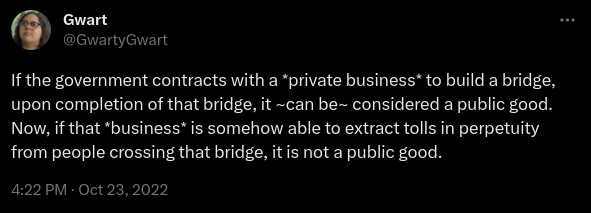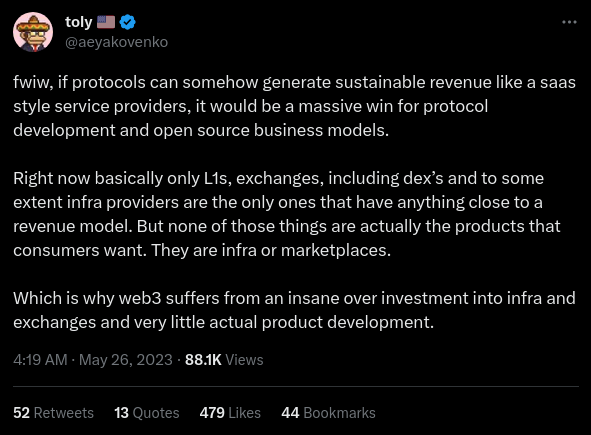WTF is a public good?
We hear a lot of people in the cryptocurrency community talking about 'public goods.' I estimate that 10% of these people understand what the term means.

An example of such a misunderstanding, from someone who generally posts good stuff.
Now, if you want the formal definition of a public good, you can check out the Wikipedia page. What I'm going to give you is the Fat Tony definition. It won't help you publish in a peer-reviewed journal, but it may help you understand the world!
A good is anything that provides value to anyone. It could be a packet of crisps, a medicine that cures cancer, or a public park. As long as it provides those proverbial utiles, it fits the definition.
Whether or not a good is public or private depends on where those utiles flow. Specifically, a good is public if a large portion of its value flows to people other than its creator or maintainer. For example, imagine that Bob cooks a pizza. If he eats that pizza all by himself, all of the utiles flow to him, and the pizza is a private good. If instead a team of pizza burglars break into Bob's house and steals the pizza, the pizza ends up as a public good.

I'm convinced that you can find practically anything on the internet... even stock images of pizza burglars
But yeah, it's more of a spectrum than a binary on/off switch. Open-source software is often used as an example of a public good, which is a fair characterization because most of the value of a software libary flows to its consumers, not its contributors / maintainers. But contributors can expect some benefits too! Like improved job prospects, a feeling of kinship, and increased reputation
So that's it! You now understand what a public good is!
What's neat about this mental model is that it helps you predict what goods will be over-produced and under-produced. For example, DeFi applications are closer to public goods because their ability to monetize is unclear. So we would expect them to be under-produced relative to infra companies, which are closer to private goods because they can charge fees and have some degree of lock-in. And sure enough...

